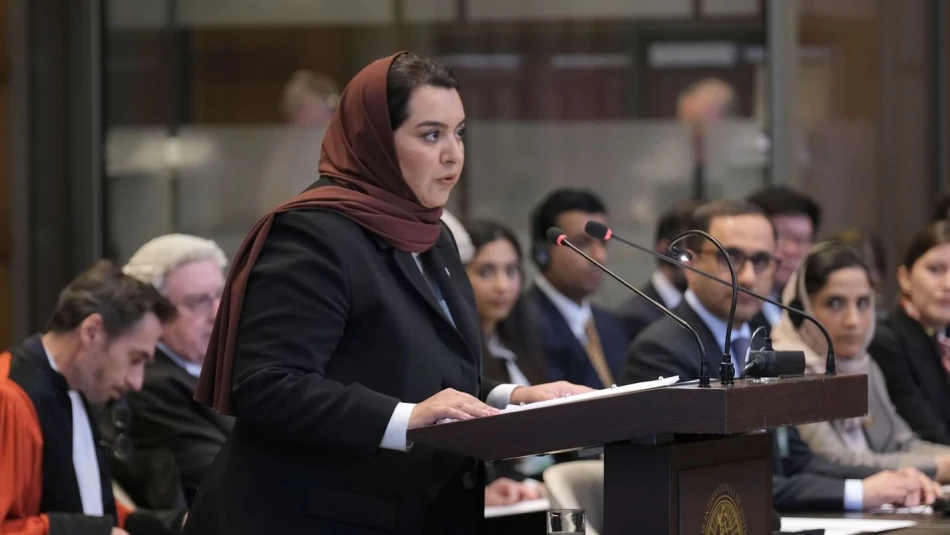
Empowered Emirati Women Pave the Way for Political Advancement
UAE Sets Global Standard with 50% Female Parliamentary Representation
The United Arab Emirates has positioned itself as a global leader in women's political empowerment, achieving 50% female representation in its Federal National Council since 2019. This milestone places the UAE first regionally and fourth globally in parliamentary gender parity, according to the Inter-Parliamentary Union, demonstrating how strategic policy decisions can rapidly transform political landscapes.
A Calculated Rise to Parliamentary Parity
The UAE's journey toward gender balance in politics began in 2006 when women first participated as voters and candidates in the Federal National Council elections. The progression tells a story of deliberate policy implementation rather than gradual social change.
The numbers reveal strategic planning: women's representation started at 22.5% in 2007, dipped to 17.5% in 2011, recovered to 22% in 2015, then jumped dramatically to 50% in 2019—a level maintained through the current 2023 legislative session. This trajectory suggests the UAE leadership made a conscious decision to accelerate women's political participation rather than wait for organic growth.
Breaking Regional Barriers
In 2015, the UAE achieved another regional first when Amal Al Qubaisi became the first woman to head a parliamentary institution in the Arab world. This appointment signaled that the UAE's commitment to women's political empowerment extended beyond numerical representation to actual leadership positions.
Economic and Strategic Implications
The UAE's approach to women's political empowerment reflects broader economic strategy. As the nation diversifies away from oil dependency, maximizing human capital becomes crucial. Countries with higher women's political participation typically show stronger economic indicators and more stable governance structures.
This policy positions the UAE advantageously in international rankings that increasingly factor gender equality into investment and partnership decisions. Global investors and international organizations often view gender parity as an indicator of progressive governance and social stability.
Comparative Global Context
The UAE's 50% female parliamentary representation surpasses many established democracies. For comparison, the United States Congress is approximately 27% female, while the UK Parliament stands at around 35%. Even Nordic countries, traditionally leaders in gender equality, typically range between 40-47% female parliamentary representation.
This achievement places the UAE alongside Rwanda (61%) and several European nations as global leaders in political gender parity, demonstrating that rapid progress is possible with committed leadership and clear policy directives.
Beyond Symbolism: Legislative Impact
Female council members emphasize their substantive contributions to policymaking, legislative drafting, and national issue discussions. This participation extends internationally, with Emirati women representing the country in the Inter-Parliamentary Union and Arab Parliament.
Amna Ali Al Adaidi attributes this success to foundational vision dating back to Sheikh Zayed bin Sultan Al Nahyan and continued support from current leadership, including Sheikha Fatima bint Mubarak, known as the "Mother of the Emirates."
Mariam Majid bin Thaniah frames women's parliamentary access as embodying wise leadership vision that recognizes comprehensive development requires balanced gender participation.
Institutional Framework for Success
The UAE's success stems from systematic institutional support rather than ad-hoc initiatives. Female parliamentarians describe a comprehensive national approach involving supportive policies, legislation, and strategic plans that create enabling environments for women's political participation.
This institutional framework suggests the UAE's model could be replicated elsewhere, provided similar top-down commitment exists. The approach demonstrates how determined leadership can accelerate social change that might otherwise take decades to achieve organically.
Regional Influence and Future Implications
The UAE's achievement creates regional pressure for neighboring countries to enhance their own women's political participation. As the UAE continues positioning itself as a progressive hub for business, technology, and governance, other Gulf states may need to adopt similar policies to remain competitive.
For the UAE itself, this political empowerment success supports broader national strategies around innovation, economic diversification, and international positioning as a forward-thinking nation ready for future challenges.
Most Viewed News

 Sara Khaled
Sara Khaled






